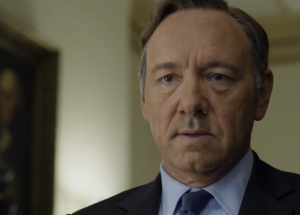Have you ever watched a show and thought this show is perfect for me? Maybe a movie?
 The last time this happened to me was True Detective on HBO. It had a cast I love, a plot that intrigued me and cinematography I admired. That seems like a lot of expensive reasons to like a show: world class writing, acting and filmmaking!
The last time this happened to me was True Detective on HBO. It had a cast I love, a plot that intrigued me and cinematography I admired. That seems like a lot of expensive reasons to like a show: world class writing, acting and filmmaking!
People love all sorts of content. What do they all have in common? Some of my colleagues would say story, many would say character. But then how would you explain that some people hate a certain book… even though it’s a great story? How would you explain BuzzFeed or ESPN? How would you explain a stand-up comedian? Story and character don’t really explain those things… especially not why people love those things.
That’s because the most important part of creating content people will love is… understanding what people love. It’s the “understanding” part that’s important. It’s understanding them deeply — what they want and need. How they spend their spare time. Their fantasies and fears. In one word, it’s empathy.
Most people don’t think of it this way, but great content that you love is engineered to be that way. It’s not an accident that you like the shows you do. It’s usually not just some guy making something that he alone thinks is perfect for himself — at least not if it’s a show you love.
Great creators get inside your head, take out your thoughts and wants… then give it right back to you.
 The process of doing this kind of research and thinking is the essence of what some people call “content strategy.” Here’s a clear and perhaps simplified version I can think of and you may have heard of it before. It’s how House of Cards was allegedly developed. Have you seen that? If you have, you probably liked that it starred Kevin Spacey, thrilled you like a thriller and had a creepy tensions that’s probably hard to describe. Well, none of this was a mistake. Netflix found in its data that:
The process of doing this kind of research and thinking is the essence of what some people call “content strategy.” Here’s a clear and perhaps simplified version I can think of and you may have heard of it before. It’s how House of Cards was allegedly developed. Have you seen that? If you have, you probably liked that it starred Kevin Spacey, thrilled you like a thriller and had a creepy tensions that’s probably hard to describe. Well, none of this was a mistake. Netflix found in its data that:
- Netflix users like Kevin Spacey
- Same with their computer-generated genre “political thrillers”
- It also showed that films by David Fincher are popular — he produced House of Cards and his involvement leaves you with that hard-to-pin-down creepy feeling… you’ll sense this pacing and style in other movies like The Girl with the Dragon Tattoo or The Social Network
- (Bonus: The DVDs of the original House of Cards mini-series were also popular among Netflix’s by-mail customers)
In fact, Netflix was so certain of their content strategy here that they didn’t ask the producers to do a pilot of it.
This actually makes a ton of sense! What does a pilot really do? It’s engineered to get into a different kind of head: a development executive’s head! A great pilot empathizes with a development exec by introducing the characters and showing them the direction of the show. It’s not really for the audience. You don’t have to sell a show to the viewer in the very first episode if you already know they love Kevin Spacey, David Fincher and political thrillers. You’re reading their mind already. The pilot doesn’t matter — it’s a homerun for that audience.
And a homerun for an audience entertains them. And the key to entertaining them is understanding what they want. And truly understanding someone — truly getting them — that’s empathy. I have a literally religious obsession with that word, empathy. And that’s why I think it’s the most important part of creating content.
Next time you create something, think less about what you like. Consider what people like you like. And you’ll know you’re creating something they’ll love.